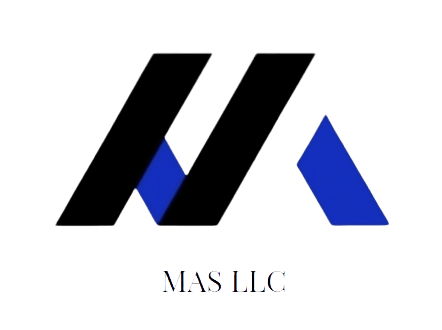July 4th, 2024
Starting a small business is a rewarding yet complex endeavor, requiring careful planning and execution. As a CPA with 24 years of experience, I have guided numerous entrepreneurs through the process of setting up their businesses. This article outlines crucial steps to help protect your personal assets, optimize tax benefits, and ensure compliance with federal, state, and local regulations. Simply opening a lemonade stand creates an official business making the business owner responsible for compliance with the total of 75,000+ pages of the Internal Revenue Code including official tax guidelines from the IRS.
1. Protect Personal Assets by Forming an LLC or Corporation
One of the first steps in starting a small business is deciding on its legal structure. Forming a Limited Liability Company (LLC) or Corporation can shield your personal assets from business liabilities. This legal protection ensures that your personal savings, home, and other assets are not at risk if your business faces lawsuits or debts.
Why Choose an LLC or Corporation?
- Limited Liability: Owners are not personally liable for business debts and obligations.
- Credibility: Establishing an LLC or Corporation can enhance your business’s credibility with customers and suppliers.
- Tax Benefits: Potential tax advantages, such as deductions for health insurance premiums and retirement contributions.
2. Obtain a Free EIN from the IRS
An Employer Identification Number (EIN) is essential for tax purposes and is free to obtain from the IRS. When applying, ensure you select only one LLC member if applicable; otherwise, you may default to a partnership, affecting your tax filings, creating a complex 1065 partnership tax return due 3/15 with stiff penalties if you miss the due date.
Steps to Obtain an EIN
- Visit the IRS website and navigate to the EIN application page.
- Complete the online application, providing details about your business.
- Receive your EIN immediately upon completion.
3. Consider Filing Form 2553 for S Corporation Election
Electing S Corporation status by filing Form 2553 with the IRS can offer significant tax advantages. This election allows income, losses, deductions, and credits to pass through to shareholders, avoiding double taxation on the corporate income.
Benefits of an S Corporation
- Self-Employment Tax Savings: Only salaries (not distributions) are subject to self-employment taxes.
- Tax Deductions: Shareholders can deduct business losses on their personal tax returns.
- Simplified Accounting: S Corporations have fewer complexities than traditional corporations.
For more detailed information, refer to our article on the basics of S Corporation elections.
4. Utilize Accounting Software
Investing in reliable accounting software, such as QuickBooks, is no longer optional. Accurate financial records are crucial for compliance, decision-making, and growth.
Advantages of Using Accounting Software
- Automation: Streamlines bookkeeping tasks and reduces errors.
- Financial Reporting: Provides real-time insights into financial performance.
- Tax Preparation: Simplifies the process of preparing tax returns and ensures accuracy.
5. Separate Business and Personal Finances
Open dedicated bank and credit card accounts for your business. Using personal accounts for business transactions can lead to commingling of assets, which the IRS scrutinizes closely and commingling of assets is a major violation that can be uncovered easily in an audit.
Importance of Separate Accounts
- Clear Records: Ensures a clear distinction between personal and business finances.
- Tax Compliance: Simplifies tax reporting and minimizes audit risks.
- Professionalism: Enhances your business’s credibility with clients and vendors.
6. Stay Compliant with State and Local Taxes
Understanding and managing state and local tax obligations, including sales tax and franchise taxes, is vital. These taxes vary by state and can be cumbersome to navigate.
Tips for Compliance
- Research Requirements: Identify the specific tax obligations in your state.
- Use Software: Employ tax software to manage and file state and local taxes. Sales tax can be especially onerous with the ever-changing nexus rules.
- Consult a Professional: Seek guidance from a CPA to ensure compliance.
7. Make Estimated Income Tax Payments
The U.S. tax system operates on a pay-as-you-go basis, requiring businesses to make estimated tax payments throughout the year.
Steps to Ensure Compliance
- Calculate Payments: Estimate your tax liability based on expected income.
- Set Reminders: Schedule payments to avoid penalties for underpayment.
- Consult a CPA: Work with a professional to accurately estimate and manage payments.
8. Know Your Tax Filing Deadlines
Different business structures have varying tax filing deadlines. S Corporations and partnerships, including multi-member LLCs, must file by March 15, while individual and corporate tax returns are due April 15.
Key Deadlines
- S Corporations and Partnerships: March 15
- Individual and Corporate Tax Returns: April 15
- Estimated Tax Payments: Quarterly, IRS due dates:
- Q1: 4/15
- Q2: 6/15
- Q3: 9/15
- Q4: 1/15 (of the following year)
9. Analyze Financial Performance for Growth
Regularly reviewing and interpreting your financial performance is essential for strategic planning. A CPA can help you identify areas for improvement and growth opportunities. This is critical in determining profitability and long-term growth. There is nothing worse than a business owner determining that every dollar earned results in an equal dollar in expenses, or even worse, more than a dollar in expenses—working more could results in losing more.
Benefits of Financial Analysis
- Informed Decisions: Provides insights into profitability and efficiency.
- Growth Planning: Identifies areas for investment and expansion.
- Cost Management: Helps control expenses and improve profit margins.
10. Distinguish Between 1099 Contractors and W2 Employees
The IRS is increasingly vigilant about misclassification of workers. It’s crucial to understand the differences between 1099 contractors and W2 employees.
Key Differences
- Control: Employees typically work under the employer’s control, while contractors operate independently.
- Benefits: Employees receive benefits such as health insurance and retirement plans, which contractors do not.
- Tax Withholding: Employers withhold income taxes for employees but not for contractors.
11. File 1099s and W2s by January 31
Timely filing of 1099s and W2s is mandatory, with significant penalties for late or missed filings.
Penalties for Late Filing
- Up to 30 Days Late: $50 per form
- 31 Days Late to August 1: $110 per form
- After August 1: $270 per form
- Intentional Disregard: $550 per form
12. Engage a Financial Advisor for Tax-Deferred Savings
Consulting a financial advisor can help your business take advantage of tax-deferred savings plans, such as an Owner K, SEP, or SIMPLE plan.
Benefits of Tax-Deferred Savings
- Retirement Planning: Ensures a secure financial future.
- Tax Savings: Contributions are tax-deductible, reducing taxable income.
- Employee Benefits: Attracts and retains top talent with competitive benefits.
In conclusion, starting a small business involves numerous critical steps to ensure legal protection, tax efficiency, and financial success. Working with a qualified CPA can provide the expertise and guidance needed to navigate these complexities, offering not only tax advice but proactive financial and tax advisory services akin to those provided by an internal Controller or CFO. Reach out to a CPA today, with whom you feel comfortable and who has the scheduling availability to set your business on the path to success. Remember that 75% of us are retiring in the next 15 years and of new CPS, close to 84% are leaving the field. When you find a good CPA you hold onto them for dear life!




